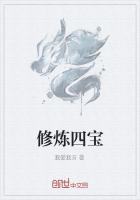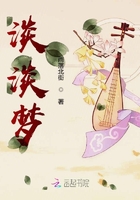When I saw another fond of popularity, constantly employing himself in political bustles, neglecting his own affairs, and ruining them by that neglect, He pays, indeed, said I, too much for his whistle.
If I knew a miser, who gave up every kind of comfortable living, all the pleasure of doing good to others, all the esteem of his fellow-citizens, and the joys of benevolent friendship, for the sake of accumulating wealth, Poor man, said I, you pay too much for your whistle.
When I met with a man of pleasure, sacrificing every laudable improvement of the mind, or of his fortune, to mere corporeal sensations, and ruining his health in their pursuit, Mistaken man, said I, you are providing pain for yourself, instead of pleasure; you give too much for your whistle.
If I see one fond of appearance, or fine clothes, fine houses, fine furniture, fine equipages, all above his fortune, for which he contracts debts, and ends his career in a prison, Alas! say I, he has paid dear, very dear, for his whistle.
When I see a beautiful sweet-tempered girl married to an ill-natured brute of a husband, What a pity, say I, that she should pay so much for a whistle!
In short, I conceive that great part of the miseries of mankind are brought upon them by the false estimates they have made of the value of things, and by their giving too much for their whistles.
Adieu, my dear friend, and believe me ever yours very sincerely and with unalterable affection.
我亲爱的朋友,我已?收到你的两封来信,周三、周六各一封。时光飞逝,一眨眼,又到了周三。我今天不再祈求收到你的来信,因为以前的信,我还没来得及回复。我承认自己懒惰,又不爱写信,可是如果不回信的话,我又怕自己再也收不到你那令人开心的来信。想到这里,我便不得不拿起笔来了。B先生好心地告诉我,他想明日去你的家中拜访,而不是在今天晚上。坐在桌前心里想着与你快乐的接触,我整个晚上都在想念你,给你写回信,并反复阅读你的来信。
我着迷于你对天堂的描述,羡慕你去那里生活的计划,并认可你的大部分观点,在这样的基础上,我们一定要最大限度地从这个世界中吸取所有的善。在我看来,如果我们注意不在哨子上付出太大的代价,我们很有可能从这个世界吸取更多的善,遭受更少的恶。因为对我来说,我们所见过的闷闷不乐的人中,大部分是由于对这一警示不予理睬而酿成了大祸。
你或许会问,我说的是什么意思?你喜欢听故事,那么请允许我讲一个发生在我身上的故事。
故事发生在我七岁那年。因为是假日,我的口袋被几位朋友塞满了í币。我赶忙直奔一家儿童玩具店。在去往商店的路上,我看到一个小男孩手中有只哨子。他吹出的哨音婉转动听,我情不自禁地着迷了。于是,我掏出所有的钱换了他那只哨子。然后,回到家后,我便吹着哨子四处游荡。我对自己的哨子爱不释手,而全家人却因为哨声苦不堪言。我的哥哥、姐姐、堂兄、堂姐、表兄、表姐得知了我买哨子的价钱后,告诉我,我买这只哨子多花了三倍的价钱,还告诉我用那些剩下的钱可以买到哪些好东西,并肆意嘲笑我的愚蠢。我懊恼地哭了起来。这件事带给我的苦恼,远多于哨子带给我的快乐。
不过,这件事一直留在我的记忆中,给我日后的人生带来了很多益处。从那以后,每当我想去买一些不必要的东西时,就对自己说,不要为哨子支付太多金钱,于是我便能省下钱。
长大后,步入社会,遇到了很多人,观察人们的行为,最后我发现,他们都为自己的哨子付出了过高的代价。
当我看见一个过分热衷于趋炎附势,为寻求会见掌权之人,而不惜牺牲自己的睡眠、自由、德行甚至朋友的人时,我便对自己说,这个人为了他的哨子付出了昂贵的代价。
当我看见另一个人醉心于名望,一次又一次投身于政界的纷扰之中,忽视了自己的分内之事,最后因这种忽视而毁了自己的人生时,我说,他确实为哨子付出了昂贵的代价。
当我得知一个守财奴,为了积累财富,宁愿放弃舒适的生活、行善的乐趣、同胞的尊重和友爱带来的欢愉时,我会说,可怜的人啊,为了哨子,你付出了昂贵的代价。
当我遇到一个沉湎于享乐,为了追求肉体上的享受,牺牲一切精神或物质上值得称道的改进,甚至不惜毁掉自己健康的人时,我说,误入歧途的人啊,你是有福不享,自讨苦吃,为了哨子,你付出了昂贵的代价。
当我看到一个人追求外在,或沉迷于精致的服装、豪华的住宅、富丽的家具、漂亮的马车,入不敷出、债台高筑,最后被投进监狱时,我说,天哪!为了哨子,他付出了如此昂贵的代价。
当我看到一个美丽动人、性情温顺的女孩,嫁给一个粗野、残忍的丈夫时,我说,真是可惜,为了哨子,她付出了昂贵的代价。
总之,我认为,人类所遭受的大部分不幸,都是因为他们对事物的价值作出了错误的评估,是因为他们为哨子付出了过高的代价。
再见,我亲爱的朋友。请相信,我永远是你真诚的朋友,对你的情感持久不变。
有时候,期望越高,失望越大。擦亮眼睛,对事物的价值作出正确的评估,就不会付出过高的代价。
梦中儿女
Dream Children
[英国]查尔斯·兰姆/Charles Lamb
查尔斯·兰姆(1775—1834),英国最杰出的小品文作家、散文家。因家境贫寒,15岁便辍学谋生,供职于东印度公司长达32年之久。兰姆十分赞赏浪漫主义思潮中人性主义的主张,并把这些用于自己温情款款的个性化散文创作。同时,他也热爱城市生活,善于用敏锐独特的眼光捕捉市井生活中变幻的都市风情。他对英国文学的真正贡献来自于他后期的《伊里亚随笔》,其丰富的情趣和精妙的表述为兰姆赢得了英国散文创作中首屈一指的地位。
Children love to listen to stories about their elders, when they were children; to stretch their imagination to the conception of a traditionary great-uncle or great-aunt, whom they never saw. It was in this spirit that my little ones crept about me the other evening to hear about their great-grandmother Field, who lived in a great house in Norfolk (a hundred times bigger than that in which they and papa lived) which had been the scene — so at least it was generally believed in that part of the country — of the tragic incidents which they had lately become familiar with from the ballad of the Children in the Wood. Certain it is that the whole story of the children and their cruel uncle was to be seen fairly carved out in wood upon the chimney-piece of the great hall, the whole story down to the Robin Redbreasts; till a foolish rich person pulled it down to set up a marble one of modern invention in its stead, with no story upon it. Here Alice put out one of her dear mother' s looks, too tender to be called upbraiding.
Then I went on to say, how religious and how good their great-grandmother Field was, how beloved and respected by everybody, though she was not indeed the mistress of this greenhouse, but had only the charge of it (and yet in some respects she might be said to be the mistress of it too) committed to her by the owner, who preferred living in a newer and more fashionable mansion which he had purchased somewhere in the adjoining county; but still she lived in it in a manner as if it had been her own, and kept up the dignity of the great house in a sort while she lived, which afterwards came to decay, and was nearly pulled down, and all its old ornaments stripped and carried away to the owner' s other house, where they were set up, and looked as awkward as if some one were to carry away the old tombs they had seen lately at the Abbey, and stick them up in Lady C.' s tawdry gilt drawing-room. Here John smiled, as much as to say, "that would be foolish indeed." And then I told how, when she came to die, her funeral was attended by a concourse of all the poor, and some of the gentry too, of the neighborhood for many miles round, to show their respect for her memory, because she had been such a good and religious woman' s good indeed that she knew all the Psaltery by heart, aye, and a great part of the Testament besides. Here little Alice spread her hands.















